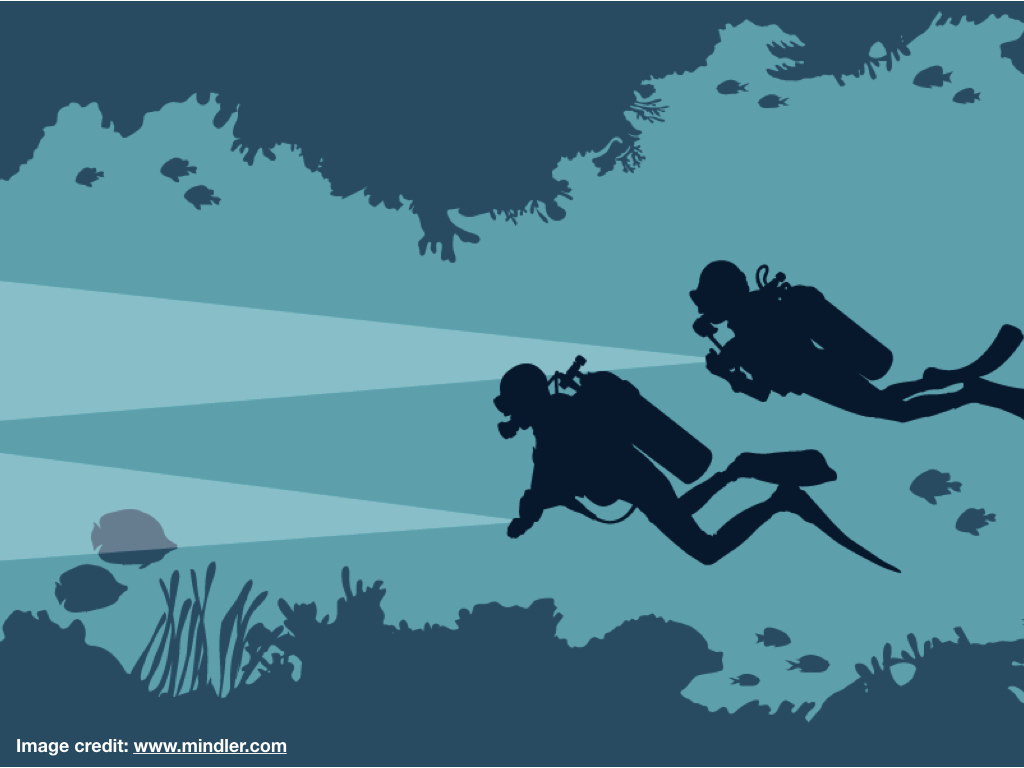A scientist is an expert, professional and researcher who studies the physical and natural world to gather knowledge on how it works and use it for the betterment of mankind.
To define a scientist is indeed a difficult task, even for a scientist, the reason is that it’s a universal term. However, as per my opinion, what I know, three qualities they must have; examine, gather knowledge and implement it for mankind.
The term “scientist” is universal and general, we can’t restrict it in specific criteria however, what they do will neither be harmful to the world nor destructive.
The betterment of humankind is significantly essential for a scientist or scientific discoveries henceforth, scientists are found in every possible instruction, faculties, organization, companies and government organization.
They have done tones or research or will do, they have a powerful analytic mind, quantitative thought process and powerful imagination to build something new.
Scientists can build a huge engine to unseen viral vectors, a strong judiciary of a country to standard operating procedures. They make boats swim in the water to fly planes in the sky. They observe cells under a microscope to nurture microbes in the lab. Their responsibilities and work are infinite.
Nonetheless, one thing common in all scientists is their out of the box thinking and qualifications.
In the present piece of content, I will explain to you what scientists are and what they do. I will try to explain things in layman (not so fancy and complicated English words and grammars).
If you are fascinated by lengthy English you can leave this article because I know there is plenty of literature available on this topic, but trust me my opinion is different.
Read more: 11 Questions to Ask Yourself before Studying PhD.
I will explain to the scientist in my language and you will like it. It’s a useful piece of content for beginners and for those who wish to be one of them. So let’s start the topic:
What is a scientist?
Imagination is more important than knowledge
– Albert Einstein.
Everything is theoretically impossible until it is done
-Robert A. Heinlein.
I haven’t failed, I’ve successfully discovered 10,000 ways to do things that won’t work
-Thomas Edison.
A scientist is a person (not a machine) who is an expert on something. Philosophically, he or she who has a powerful mind, thinking abilities and problem-solving capacity is a scientist.
They have a specialized degree in their related field to conduct various types of research and have done substantial discoveries or searches in the past. Some greatest scientists didn’t have sufficient education or a graduation degree either, however. In recent times, the honor, scientist, is given to the person who is an expert and has a doctorate degree at least.
The astronaut or expert in history- the historian both are scientists so technically universities award the scientist degree in every subject, but the criteria for it is that they have done original research in their subject.
Definition:
A scientist is a person who possesses a doctorate honor, is experienced and has the ability to test various theories, providing original knowledge is known as a scientist.
Read more: List of doctorate degrees in Science, Fine arts, Commerce and Computer.
As we said earlier, we can’t perfectly define the term because it’s universal and can’t be explained with restrictions. Let’s make it more clear here is the list of some scientists:
Type of scientists:
| Biologist | Ecologist | Biochemist | Climatologist | Dermatologist |
| Chemist | Tropical ecologist | Coastal ecologist | Oncologist | Cardiologist |
| Physicist | Wetland ecologist | Climate ecologist | Immunologist | Endocrinologist |
| Zoologist | Terrestrial Ecologist | Historian | Neurologist | Medical scientist |
| Botanist | Wildlife biologist | Sociologist | Urologist | Robotics expert |
| Microbiologist | Cytogeneticist | Musician | Toxicologist | Geologist |
| Biotechnologist | Statistician | Marine biologist | Mechanist | Psychologist |
| Environmental scientist | Mathematical | Anthropologist | Forensic chemist | haematologist |
| Epidemiologist | Entomologist | Biogeochemist | Economist | management expert |
| Geneticist | Biophysicist | Astacologist | Social scientist |
Types of scientists and their roles:
Biologists: Studies nature, biology and living things.
Physicist: Studies structure and function of the physical world, atoms or molecules or non living things.
Chemist: studies chemicals, their structure, function, properties and uses.
Geneticists: Studies DNA, gene, chromosomes, mutations and genetic disorders.
Biotechnologies: studies various aspects of technology and biology.
Microbiologist: studies structure, function and properties of microbes, culture them and conducts experimentations.
Zoologist: studies animals, their behaviour, physiology and anatomy.
Botanist: studies plant physiology, anatomy and utilities.
Marine biologist: studies living things in sea
Cytogeneticist: studies chromosomes, their structure, function and associated disorders.
Biochemist: studies chemical and physical properties of living entities, biological processes and metabolic pathways.
Molecular biologists: studies life at molecular level.
Geologist: studies earth, various conditions, climate, its origin and various other aspects related.
Paleontologist: studies fossils.
Statistician: provides statistical help to other researchers, conducts quantitative analysis.
Mathematician: studies mathematics.
Historian: studies history, evaluates facts from it and presents it to the world.
Sociologist: studies social or human behaviour, interaction and background.
Toxicologist: studies various types of toxins.
Forensic scientist: helps to improve the overall quality of forensic findings by performing various research.
Dermatologist: studies skin, related disorders, problems and provides treatments and solutions for it.
Neurologist: studies neuro system of us
Medical scientists: performs various medical practices to improve the healthcare facilities.
Related article: How to get a PhD degree in 10 steps.
Educational requirements:
In the past, people doing independent research (as it was their interest) found something new for the world and for the betterment of humankind. There weren’t any educational requirements, though sometimes they have faced problems from government and religious authorities.
For example, Nicolaus Copernicus found that not the sun but the earth is moving around the sun. He was found guilty for misleading people, though he was right.
In modern times, after the mid-19th-century people go to high school, get graduations and even go for doctorates to learn new things.
A doctorate degree or PhD in the related subject is mandatory to be a scientist in their field. Universities conduct a personal interview and/or common entrance test to give admission in PhD. A student can choose either professional doctorate (in case of medicines and nursing) or PhD degree.
A student needs to clear graduation, post-graduation, MPhil and PhD degree to do professional research. In addition to this, previous research work and research experience is taken into considerations too.
What do scientists do?
Scientists do research, provide knowledge by testing hypotheses. Every scientists have to perform three key functions:
Conducting research:
The function every scientist does is to conduct various research projects whose objectives are to improve the system or find new things. Exper prepare the proposal for the research, plans and arrange funds, gather utilities and informations, higher interns, coordinates with other scientists and selects hypotheses to test.
Writing and publishing research:
Yet another key role is to write research. After getting results, they write a report, article or paper on their findings and submit it to authorities with their solution or possible ways to improve.
They also publish their research to get more recognition, internationally.
Teaching or tutoring:
Scientists also teach students, staff, faculties and PhDs. in academics, their role is to prepare future generations for research and teach them.
Here are some of the functions they performs in various organization:
Finds problem, gap and loophole
- Do research
- Observe things and rise a question (make objectives)
- Collect informations
- Make a hypothesis, theorem or assumption
- Set an experiment or set of experiments to test the hypothesis
- Collects sample and gather all utilities related to the experiment
- Collect results
- Interpret results
- Publish a research, article, case study or report
- Avail grants or financial aids.
- Developes SOPs, system operations, policies or quality assurance
- Improve system or existing facilities
Experts find gaps, problems or real-world loopholes that need to be fixed to overcome the problem. To do so, conducts research, search literature and related information to conduct experiments.
They also test hypotheses to solve problems, collect the results and improve the overall system or solve the problem. If they get substantial results, publish it to make it available publicly.
Based on what they do at their workplace, are classified into several categories:
- Research scientist
- Computational scientist
- Technical scientist
- Policy scientist
- Teacher scientist
- Medical scientist
Research scientist:
RS are working at various research organizations. Here they design, perform, conduct and evaluate various research to solve problems. Also publish it and avail grants for organizations.
Biologists, microbiologists, zoologists, cytogeneticists, oncologists, biochemists, physicists, chemists are considered as research scientists.
Computational scientist:
Computational scientists or analytical experts also work at various research organizations but at data centres or computer departments. Their role is to collect information, results and data, store it securely, interpret it and send it to higher authorities.
Statisticians, mathematicians, computer software experts, and programmers are computational scientists.
Technical scientists:
Technical scientists or technical experts are those who provide technical support to companies or organizations. They are experts in handling calibrations, standardizations and quality assurance.
In the research field, other scientists highly rely on technical experts to give best quality work. They usually conduct operations to calibrate instruments used in healthcare, diagnostics or research.
Policy scientists:
Policies of organization, company, country, government department or international issues are critical, henceforth prepared and evaluated by expert or policy scientists only.
For example, the expert or policy scientist of international affairs has enough knowledge, problem solving capacities and sources to solve international affairs.
Policy decides the overall structure of the organization on which the entire system will run.
They also evaluate policies to find loopholes in order to improve the system.
Teacher scientists:
Teacher scientists, professors or lecturers are working in academics to teach students and inherit knowledge to next generations. They prepare candidates for PhD or doctorates, teach them research methodologies and scientific processes.
However, within academics they can also conduct research by preparing projects, and avail financial aids to their college or organization.
Teacher scientists also teaches other staff, researchers and employees. Usually any PhD degree holder can work as a teacher scientist.
Medical scientists:
Medical scientists are trained professionals in medical science. Those conduct research on various medical science problems. They do
- Clinical trials
- Checks vaccines and drug dosage and side effects
- New therapies for treating disease
- Testing various drugs
- Developing testing and diagnostic facilities.
- Developing new treatment options.
Read further: Doctorate vs PhD- differences and similarities.
How much scientists earn?
Scientists can earn between $50,000 to $5,00,000 per year. Yet it depends on the experience, position, knowledge of a researcher and organization at where they are working.
The average salary of a scientist is around $1,11,000 or 6,50,000 INR per year. Expected salary of various scientists are given into the table below,
| Scientits | Salary in USA/ year | Salary in India/ year |
| Biologist | $68,000 to $80,000 | 5,00,000 to 7,50,000 INR |
| Psychologist | $77,800 to $1,67,000 | 2,50,000 to 3,50,000 |
| Historian | $50,652 to $83,300 | 4,80,000 to 6,51,000 |
| Ecologist | $42,800 to $1,24,700 | 3,40,000 to 8,00,000 |
| Physicist | $62,470 to $2,01,990 | 8,00,000 INR |
| chemist | $71,800 to $99,600 | 2,40,000 to 8,50,000 INR |
| microbiologist | $39,920 to $1,00,000 | 1,50,000 to 4,80,000 INR |
| Geneticist | $1,59,300 to $1,94,895 | 6,00,000 to 8,50,000 |
| Medical scientist | $88,000 to $3,30,000 | 4,00,000 to 11,99,000 INR |
| Epidemiologist | $44,000 to $1,19,290 | 7,20,000 to 12,00,000 INR |
| Toxicologist | $79,622 to $93,300 | 5,11,00 to 9,27,000 INR |
| Marine biologist | $32,500 to $1,26,394 | 4,50,000 to 8,84,000 INR |
| Sociologist | $46,900 to $1,41,700 | 4,80,000 to 6,92,000 INR |
| Cytogeneticist | $41,550 to $85,160 | 4,00,000 to 7,82,800 INR |
| Nurse scientists | $85,000 to $1,25,000 | 4,56,000 to 6,00,000 INR |
| Doctor in education/ educational specialist | $69,000 to 1,05,000 | 3,66,000 to 4,90,000 INR |
| Neurologist | $2,60,00 to $3,46,000 | 16,91,600 or more INR average |
| Medical doctor | $1,43,000 to $2,94,000 | 10,00,000 to 18,90,000 INR |
| Statistician | $52,690 to $87,000 | 5,50,000 to 6,40,000 INR |
Job Profiles:
A scientist can work in various organizations, companies, research centers, academia, government departments, hospital and other places. They can also work in a private place and can start their own startups. Besides, experts can also open their own clinics, counseling and consultancy services.
Conclusion:
To be a scientist needs interest, dedication and three-dimensional thinking abilities. A scientist should have problem-solving capacities and also have responsibilities to work under pressure conditions.




